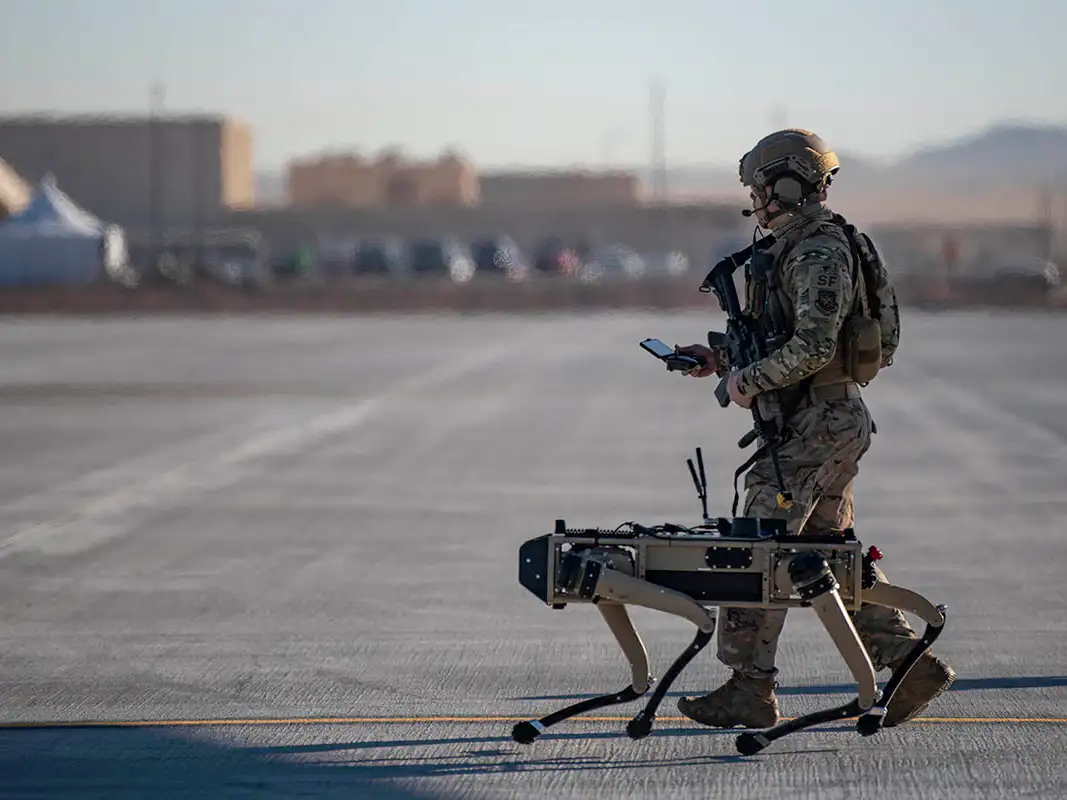
Key Points:
- Retired Army Gen. Mark Milley predicts that one-third of the US military could be robotic by 2039, driven by AI and unmanned technology advancements.
- The character of war is evolving rapidly due to these technological advancements, with significant implications for military operations and strategy.
- The ethical implications of AI-powered warfare raise concerns about accountability, bias, and potential unintended consequences.
Milley Predicts One-Third of US Military Could Be Robotic by 2039
The future of warfare may be more robotic than many realize, according to retired Army Gen. Mark Milley, former chairman of the Joint Chiefs of Staff. During a recent Axios event, Milley predicted that a significant portion of the US military could be composed of robots by 2039, driven by advancements in artificial intelligence (AI) and unmanned technology.
“Ten to fifteen years from now, my guess is a third, maybe 25% to a third of the U.S. military will be robotic,” Milley stated. He envisions these robotic forces being commanded and controlled by AI systems, suggesting a potential shift in the human role on the battlefield.
The Character of War Evolving
Milley acknowledges that the nature of war and its underlying motivation and political aims remain largely unchanged. However, the character of warfare, encompassing tactics, technologies, weapons, and training, is undergoing a dramatic transformation fueled by the rapid rise of AI and robotics.
Maintaining Supremacy in a Changing World
For the United States to maintain its military dominance, Milley believes rapid adaptation to these technological advancements is crucial. He recognizes that such adaptation could lead to seismic shifts in military operations and raises significant ethical questions.
Current US policy dictates that human oversight is essential for the use of lethal force by military robots. This policy prioritizes human ethical judgment over AI’s potential decision-making capabilities.
“Technology doesn’t have morality,” Milley stated, underscoring AI-enabled warfare’s ethical complexities.
Ethical Considerations and the Future of Warfare
While the current emphasis remains on human control of lethal force, Milley acknowledges the potential for a future where AI-powered robots could make autonomous decisions.
“You can imagine a future from a technical standpoint [where] a machine enabled by AI, a robot enabled by AI, could make its own decisions,” Milley said. “Is that something the world wants?”
This question underscores the growing ethical and societal implications of AI-powered warfare. The potential for autonomous weapons systems raises concerns about accountability, bias, and the potential for unintended consequences.
Navigating the Future
Integrating robotics and AI into military operations presents both opportunities and challenges. While the promise of enhanced efficiency, speed, and tactical advantage is undeniable, careful consideration of ethical, societal, and legal implications is crucial.
As the world grapples with the rapid advancement of technology, the debate surrounding AI-enabled warfare will likely intensify. Whether to embrace a future of robots on the battlefield or carefully navigate the ethical complexities of this technological revolution remains at the forefront of global discourse.
